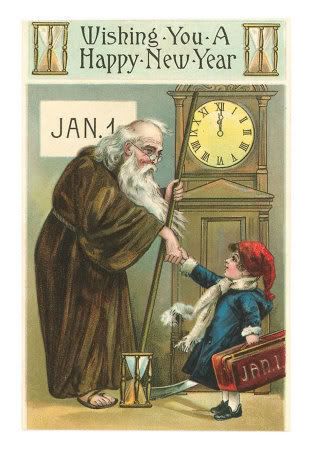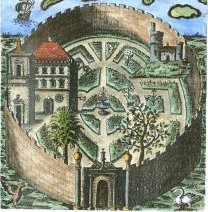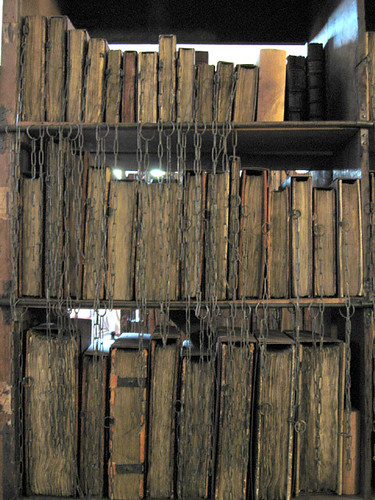
I am often amused by the symbols and the history of those symbols that surrounds us daily. Take New Years, for example. The symbols that are often used are an old man and a baby. On the surface of it, this is the old year giving way to the new. The old man is usually shown with a sickle and an hour glass, suggesting that he is the god Saturn, whose celebration was December 17-December 23. New Years takes place one week after Christmas, where Christians celebrate the birth of Jesus, the new born king. This time of year is frequently referred to as the Season of Light.
All of this can be traced to the winter solstice and a possible pagan rite where by the consort of the goddess dies (or is murdered) and a new consort is selected. This is a pre-literate rite and can only be suggested by cultural carry overs. For more information, one should check out The Chalice and the Blade, When God Was a Women, and Robert Graves' work The Greek Myths. It goes something like this. The sun has become weaker and weaker since the summer solstice and, one might believe, be close to death. The ancient pagan rite suggested that the sun was a god (and consort to the goddess) and does, in fact, die. After a period of mourning, a young, new consort is selected (or, possibly, the old consort is reborn) and the light of the sun begins to strengthen. Disaster is averted.
All of this is to say that I'm going to take a couple of weeks off to enjoy the Winter Solstice, Saturnalia, the birthday of Sol Invictus, Yule, Christmas, New Years, whatever. I'll see you next year.







